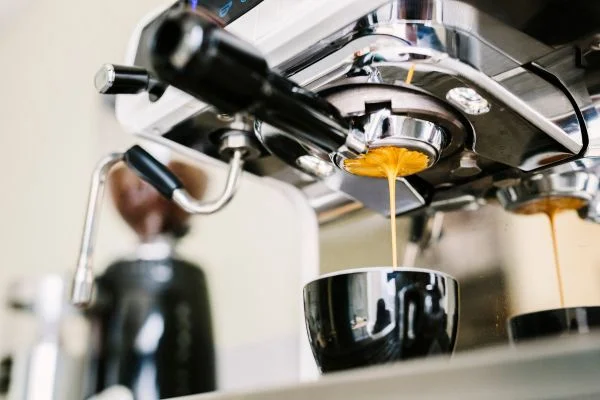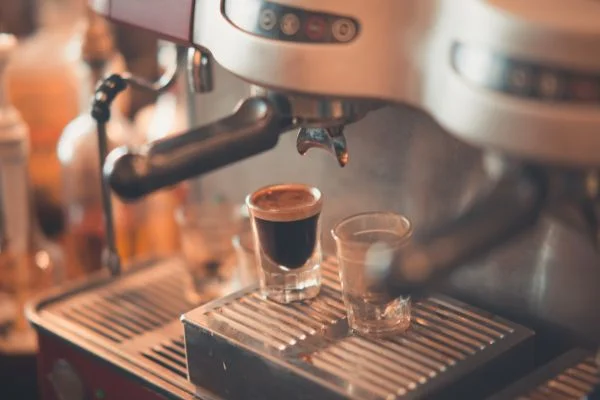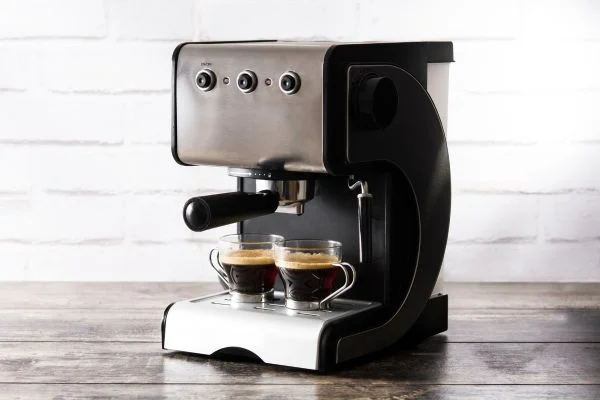With its rich aroma and intense flavor, Espresso is a beloved beverage enjoyed by coffee enthusiasts worldwide. Traditionally, espresso machines utilize finely ground coffee beans to extract the distinctive essence of the brew. However, an intriguing question arises: Can I Use Ground Coffee In Espresso Machine? This article will delve into this topic, examining the considerations and potential consequences of using ground coffee in an espresso machine.
Can I Use Ground Coffee In Espresso Machine | Let’s Have A Look
Understanding Espresso Machines: To comprehend the impact of using ground coffee, it is vital to have a basic understanding of how espresso machines function. These machines use pressure and hot water to extract flavors from finely ground coffee quickly. The high-pressure process forces water through the coffee, resulting in the signature concentrated and flavorful shot of espresso.

The Role of Finely Ground Coffee: One of the critical elements in the espresso-making process is the fineness of the coffee grind. Finely ground coffee has a larger surface area, allowing for faster extraction and efficiently capturing desired flavors. This grind size is specifically tailored to match the characteristics of an espresso machine, ensuring optimal extraction and a balanced flavor profile.
Read more about How Choose Semi Automatic Espresso Machine?
Challenges of Using Ground Coffee:
Inadequate Extraction: One of the primary challenges is achieving adequate extraction when using ground coffee in an espresso machine.
Coarser ground coffee, commonly used in other brewing methods such as drip or French press, may not provide enough surface area to extract the desired flavors within the limited contact time of an espresso shot. This could result in a robust, under-extracted espresso needing more complexity and body.
Channeling and Uneven Extraction: Ground coffee not finely calibrated for espresso machines may lead to issues such as channeling. Channeling occurs when water finds a path of least resistance through the coffee puck, causing uneven extraction.
This can result in a shot with over- and under-extracted areas, leading to an imbalanced flavor profile.
Clogging and Maintenance: Espresso machines are designed to work optimally with finely ground coffee. Using coarser or pre-ground coffee can increase the risk of clogging the machine. The particles may accumulate and obstruct the flow, leading to potential damage and requiring frequent cleaning and maintenance. Here is potential solution on can I use ground coffee in espresso machine.
Potential Solutions:
Adjusting Brew Time: To compensate for the coarser grind size, it may be necessary to extend the brew time when using ground coffee in an espresso machine. This can help improve extraction, allowing the water more time to dissolve the desirable compounds and extract flavors more thoroughly.
Experimenting with Grind Size: Although ground coffee may not match the fineness required for espresso, it is possible to experiment with grind sizes to find a balance that yields a fair shot. This trial-and-error process involves adjusting the grind to achieve an extraction that is neither too weak nor too bitter.
Utilizing Pressurized Portafilters: Some espresso machines feature pressurized portafilters designed to compensate for variations in grind size and tamping pressure. These portafilters create artificial pressure and can be a viable option when using ground coffee.
However, it is essential to note that while they can improve extraction, the resulting shot may not possess the same level of complexity as one brewed with finely ground coffee.
Read more about Are Automatic Espresso Machines Good?
What Coffee To Use For Espresso Machine?
Selecting the proper coffee for an espresso machine is crucial in achieving a flavorful and satisfying shot of espresso. When choosing coffee for your espresso machine, consider the following factors:

Espresso Roast: Look for coffee beans labeled “espresso roast” or “espresso blend.” These beans are typically roasted slightly darker than other coffee beans, resulting in a more robust flavor profile that can withstand the intense brewing process of espresso machines. Espresso roast beans are often characterized by their rich and bold flavors.
Whole Bean vs. Pre-Ground: It is generally recommended to use whole bean coffee for espresso. Grinding the beans just before brewing ensures maximum freshness and flavor. The moment coffee beans are ground, they start to lose their aroma and flavor due to exposure to air. If you prefer the convenience of pre-ground coffee, ensure it is specifically labeled for espresso machines and purchase it in small quantities to maintain freshness.
Freshness: For the best espresso experience, use freshly roasted coffee beans. Look for beans that have a roast date within the past two to four weeks. Coffee beans have a peak flavor window shortly after roasting, so fresher beans will offer more vibrant flavors and aromas.
Arabica vs. Robusta: Arabica and Robusta are the two main species of coffee commonly used for espresso. Arabica beans are known for their nuanced flavors, acidity, and pleasant aromas. They often produce a more desirable and complex shot of espresso. On the other hand, Robusta beans have a higher caffeine content and a more intense, bitter flavor profile.
They are often used in espresso blends to enhance crema and body. Some espresso blends contain a combination of both Arabica and Robusta for a balanced flavor.
Origin and Flavor Profile: Consider the origin and flavor profile of the coffee beans. Different regions and countries produce coffee beans with distinct flavor characteristics. For example, beans from South America often have a balanced flavor with notes of chocolate and nuts, while beans from Africa may exhibit fruity and floral flavors.
Experimenting with different origins can add variety and allow you to find the flavor profiles that suit your taste preferences.
Specialty Coffee: If you’re looking to explore the world of specialty coffee, many roasters offer single-origin or specialty espresso blends. These beans are often sourced with a focus on quality, sustainability, and unique flavors. Specialty coffee can provide an exceptional espresso experience, highlighting the nuances of specific regions or processing methods.
Read more about How To Make Hot Chocolate With Espresso Machine?
Bottom Line
Now got the answer to the question: Can I Use Ground Coffee In Espresso Machine? Using ground coffee in an espresso machine presents challenges due to the differences in grind size and extraction requirements. While achieving a good shot using ground coffee is possible, it is unlikely to replicate the essence of an espresso brewed with finely ground coffee.
Espresso machines are designed to work optimally with the finely calibrated grind size, ensuring proper extraction and a harmonious flavor profile.
Coffee enthusiasts seeking an authentic espresso experience are encouraged to invest in a quality burr grinder and freshly roasted coffee beans. This combination will provide the best opportunity to extract the full potential of the coffee and savor the rich flavors and aromas that make espresso a delightfully unique beverage.



